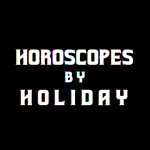Picture a taxi cab leaping through heavy traffic like an acrobatic billy goat. In fact, the word "cab" is derived from the Latin word for a goat.
"Cab" is a shortening of the French word "cabriolet." Originally, a cabriolet was a two-wheeled carriage drawn by a single horse. This light vehicle bounced so much over bumpy roads that the French gave it the Italian word for somersault, "cabriola," which is derived from the Latin "caper," meaning "goat," an animal known for its playful gambols.
In fact, goats frolic in several other English words, including caper (a frisky leap or escapade), capriole (a playful jump), capricious, chevron and Capricorn. When it comes to inspiring frisky words, the Latin "caper" might just be the G.O.A.T.
"Capricious" was originally derived, not from the goat, but from the hedgehog. It comes from the Italian word "capriccio," which means "shiver of fear." The Italians thought a frightened person whose hair was standing on end resembled a spiky-headed hedgehog. So it was called a "capriccio," from "capo" (head) and "riccio" (hedgehog).
But when English adopted "cappricio" as "capricious," its meaning fell under the spell of "caper." Thus "capricious" came to mean, not "fearful," but "whimsical." William Shakespeare, that sly, goat-footed Pan of the pen, plays with the connection between "capricious" and "goat" when his character Touchstone says in "As You Like It": "I am here with thee and thy goats as the most capricious poet, honest Ovid, was among the Goths." (This is really a double pun because "capricious" derives from the word for a goat and "Goths" sounds like "goats.")
As for "chevron," the Romans thought the v-shaped pattern formed by the intersection of two roof rafters resembled a leaping goat. So they called a rafter a "chevron," after the vulgar Latin "capron," goat. In English, "chevron" came to mean a v-shaped insignia.
The goat-shaped constellation and Zodiac sign "Capricorn" literally means "horned goat" in Latin. It's so named because the Greeks believed this constellation was Amalthea, the goat that nursed the infant Zeus. In fact, one of the moons of the planet Jupiter (the Roman name for Zeus) is called "Amalthea" in that nanny goat's honor.
And "Tropic of Capricorn"? When the direct rays of the sun reach this astronomical line in the southern hemisphere on the winter solstice, the sun just happens to be frolicking in the constellation Capricornus. I kid you not!
Rob Kyff, a teacher and writer in West Hartford, Connecticut, invites your language sightings. His book, "Mark My Words," is available for $9.99 on Amazon.com. Send your reports of misuse and abuse, as well as examples of good writing, via email to [email protected] or by regular mail to Rob Kyff, Creators Syndicate, 737 3rd Street, Hermosa Beach, CA 90254.
Photo credit: Nandhu Kumar at Unsplash






View Comments